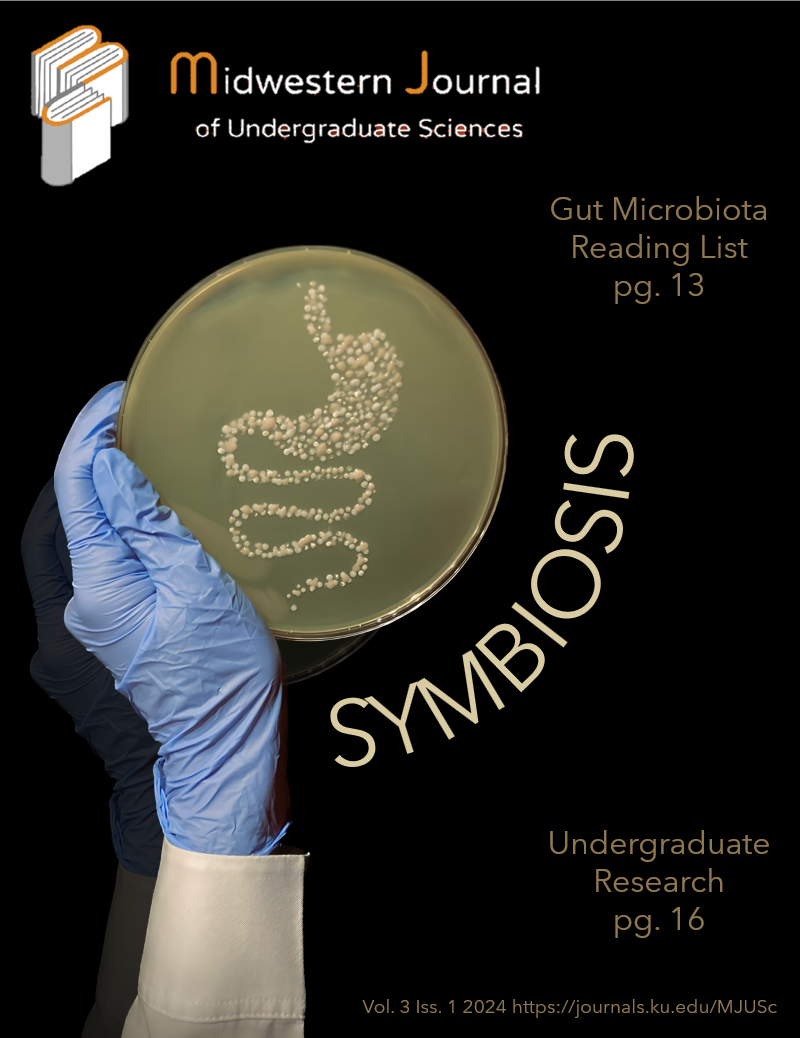Giving Cancer Cells a Taste of Their Own Medicine: Lactic Acid from Vaginal Microbiota Protects Against Cancer
DOI:
https://doi.org/10.17161/mjusc.v3i1.22861Keywords:
cancer, lactic acid, microbiome, Vaginal microbiotaAbstract
Cancer is a leading cause of morbidity and mortality worldwide, with cervical cancer ranking among the top four most common malignant tumors in females. Tumor microenvironments surrounding solid tumors, including cervical cancer, have often been found to contain high concentrations of lactic acid due to a preference for aerobic glycolysis, termed the Warburg effect. Several studies have implicated lactic acid in solid tumors’ ability to evade immune defenses, but lactic acid’s role in the human body is far from being one-sided. Lactobacillus species, the most common bacteria in the vaginal tract, have long been known to play a protective role in the vaginal microbiota by secreting lactic acid that inhibits the growth of pathogens. Recent research by Fan et al. uncovered that the beneficial effects of lactic acid produced by Lactobacillus species not only prevent vaginal infections but also protect against cervical cancer by regulating the fucosylation of vaginal epithelial cells. Hence, vaginal Lactobacillus gives cervical cancer cells a taste of their own medicine: using high doses of the very molecule that cancer cells may use to evade the immune system to suppress the cancer cells’ growth.
References
Bray, F. et al. Global cancer statistics 2018: GLOBOCAN estimates of incidence and mortality worldwide for 36 cancers in 185 countries. CA. Cancer J. Clin. 68, 394–424 (2018).
Pérez-Tomás, R. & Pérez-Guillén, I. Lactate in the Tumor Microenvironment: An Essential Molecule in Cancer Progression and Treatment. Cancers 12, 3244 (2020).
Wang, Q. et al. N6-methyladenosine METTL3 promotes cervical cancer tumorigenesis and Warburg effect through YTHDF1/HK2 modification. Cell Death Dis. 11, 911 (2020).
Hanson, R., Logan, R. & Treml, J. Analyzing Jurkat T Cell Viability and T Cell Receptor Signaling in Tumor Microenvironments. Midwest. J. Undergrad. Sci. 1, 17–22 (2022).
Sy, K., Logan, R. & Treml, J. Assessing the effects of lactate on the immune responsiveness of T cells in vitro. Midwest. J. Undergrad. Sci. 3, (2024).
Jedlička, M., Feglarová, T., Janstová, L., Hortová-Kohoutková, M. & Frič, J. Lactate from the tumor microenvironment - A key obstacle in NK cell-based immunotherapies. Front. Immunol. 13, 932055 (2022).
Gottfried, E. et al. Tumor-derived lactic acid modulates dendritic cell activation and antigen expression. Blood 107, 2013–2021 (2006).
Witkin, S. & Linhares, I. Why do lactobacilli dominate the human vaginal microbiota? BJOG Int. J. Obstet. Gynaecol. 124, 606–611 (2017).
O’Hanlon, D. E., Moench, T. R. & Cone, R. A. Vaginal pH and microbicidal lactic acid when lactobacilli dominate the microbiota. PloS One 8, e80074 (2013).
Kovachev, S. M. Cervical cancer and vaginal microbiota changes. Arch. Microbiol. 202, 323–327 (2020).
Audirac-Chalifour, A. et al. Cervical Microbiome and Cytokine Profile at Various Stages of Cervical Cancer: A Pilot Study. PloS One 11, e0153274 (2016).
Fan, Q. et al. Lactobacillus spp. create a protective micro-ecological environment through regulating the core fucosylation of vaginal epithelial cells against cervical cancer. Cell Death Dis. 12, 1094 (2021).
This is the main reference for this review.
Kondo, A. et al. From glycomics to functional glycomics of sugar chains: Identification of target proteins with functional changes using gene targeting mice and knock down cells of FUT8 as examples. Biochim. Biophys. Acta BBA - Proteins Proteomics 1764, 1881–1889 (2006).
Jin, Y. et al. Increased sialylation and reduced fucosylation of exfoliated cervical cells are potential markers of carcinogenesis in the cervix. Clin. Chem. Lab. Med. CCLM 54, 1811–1819 (2016).
Goto, Y., Uematsu, S. & Kiyono, H. Epithelial glycosylation in gut homeostasis and inflammation. Nat. Immunol. 17, 1244–1251 (2016).
Hao, S. et al. Core Fucosylation of Intestinal Epithelial Cells Protects Against Salmonella Typhi Infection via Up-Regulating the Biological Antagonism of Intestinal Microbiota. Front. Microbiol. 11, 1097 (2020).
Downloads
Published
Issue
Section
License
Copyright (c) 2024 Kaitlyn Si, Jack Treml

This work is licensed under a Creative Commons Attribution-NonCommercial 4.0 International License.
© The Author(s)
This work is licensed under a Creative Commons Attribution-NonCommercial 4.0 International license.

